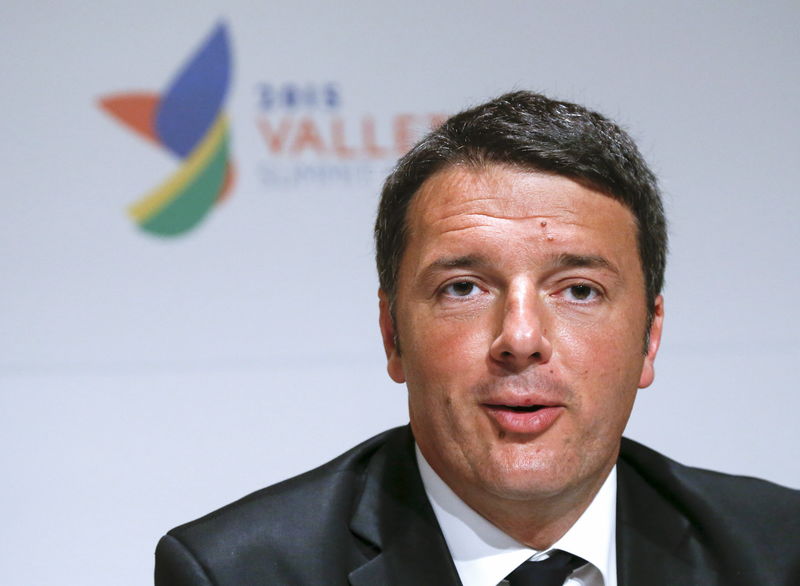By Gavin Jones
ROME (Reuters) - The governing Democratic Party (PD) has been sucked deeper into Italy's vortex of corruption scandals with the governor of one of its most populous regions coming under fire in a further embarrassment for Prime Minister Matteo Renzi.
The latest affair, involving alleged trading of favours with a judge in the southern city of Naples, came a few weeks after the mayor of Rome, also a PD member, was forced to resign over allegations that he fiddled his dining expenses.
Vincenzo De Luca, 66, an influential and colourful party boss with a strong local following, has been a lightning rod for graft suspicions ever since he was elected in June as governor of the region of Campania that is centred on Naples.
Internal party critics of Renzi said he should not have let De Luca run because he had already been convicted for abuse of office when mayor of the southern city of Salerno, and a law bars those with criminal convictions from holding public office.
A Naples court ruled in July De Luca could remain in office until a higher court made a definitive ruling in the case.
But this week prosecutors said they suspected the decision was the result of favour-trading between De Luca and the judge, whose husband was seeking a senior job in the local health authority. De Luca, his top aide, the judge and her husband have all been placed under investigation.
All four have denied wrongdoing, and although the aide, Carmelo Mastursi, resigned this month after finding out he was under investigation, De Luca has refused to budge.
"I know nothing about all this," De Luca said, calling on political enemies to let the matter drop. "Anyone who thinks they can put me under a siege will receive buckets of boiling oil on their heads."
The affair is further tarnishing the PD's image, already badly dented by the Rome shenanigans, and senior members of the party have distanced themselves from De Luca.
"I would have chosen another candidate in Campania," Justice Minister Andrea Orlando told the La Stampa newspaper in an interview on Friday, referring to whether De Luca should have been allowed to stand in the June vote.
Renzi himself said on Friday there was no question of pushing De Luca from his post. "The magistrates have to carry out their duty and we have confidence in their work. At the same time the governor has a right and duty to govern this region," he told reporters after a cabinet meeting.
Support for Renzi's PD has eroded steadily over the past year. Although the PD remains the most popular party in Italy, several polls this month said it risked losing power in a likely run-off vote under the terms of a new electoral law Renzi's government has drawn up.
The next election is not due until 2018.
Efforts by Italian magistrates to curb graft and the appointment of a special anti-corruption commissioner have failed to halt a seemingly endless series of scandals often intertwining politicians and organised crime.
This month a high-profile trial began in Rome in a case known as "Mafia Capitale", bringing to court dozens of politicians and businessmen suspected of rigging public contracts in areas ranging from Roma camps to refuse management and immigrant centres.

Italy's central bank governor is also caught up in a corruption investigation.